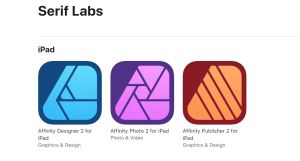 What is Google’s Learn About AI educational companion?
What is Google’s Learn About AI educational companion?
Even if you’re not a student, it’s always nice to learn new things, right? While it’s impossible to find hard facts stemming from solid research efforts which tell that most people have an inquisitive mind, secondary evidence can support such an assumption. Just look at how popular science-y shows are (some, like NOVA, have been around for over 50 years), and the endless stream of books making complicated stuff digestible for most of us. It looks like Google understands this, too: their recent addition to the set of AI-riven services is Learn About, an educational companion that answers your questions in an enlightening manner.
Learn About relies on the LearnLM large language model introduced at the Google I/O event earlier this year. This LLM focuses on the content that has real educational value in terms of form, too. Moreover, crafting answers, the service factors in human learning patterns, making it particularly suited for academic and informational inquiries.
Key features of Learn About by Google
Dialogue-driven learning. Learn About resembles a tutor that encourages conversations revolving around various topics, giving information in the context of such conversations and, presumably, taking “boring” out of studying and learning new things.
Visualization and interactive components. A regular chatbot can also answer questions quite well, but most will not go as far as to collect visual and even interactive elements that support the answer. Learn About does that, and prefers academic resources for the purpose (sorry, Wikipedia).
Trustworthiness. Those working with AI on an everyday basis – using or developing it – call incorrect information such systems are prone to give “hallucinations.” It is actually one of the biggest problems associated with LLMs currently. Lean About circumvents the pitfalls by being picky about the sources, as said above, and also explicitly highlighting common misconceptions that are connected to the given query, thus safeguarding users from taking such at face value.
Personalization. Learn About tailors its responses based on the user's existing knowledge level, providing context and vocabulary assistance when necessary. For example, when queried about specific academic concepts, it not only defines terms but also explains their relevance and implications.
How does Learn About out compare to Gemini?
Google has already made its bet in the AI realm with Gemini, it would seem, so why bother with a new product – and Learn About feels like a new product? It is likely a matter of diversification and foresight: the giant sees that artificial intelligence will soon be ubiquitous, and this means customized solutions for niches. It’s always better to be among the first to ride a wave that’s inevitable.
Learn About was made available to the public on November 11, 2024, in the US, with the assumed plans to gradually give access to the tool to everyone on the planet.



